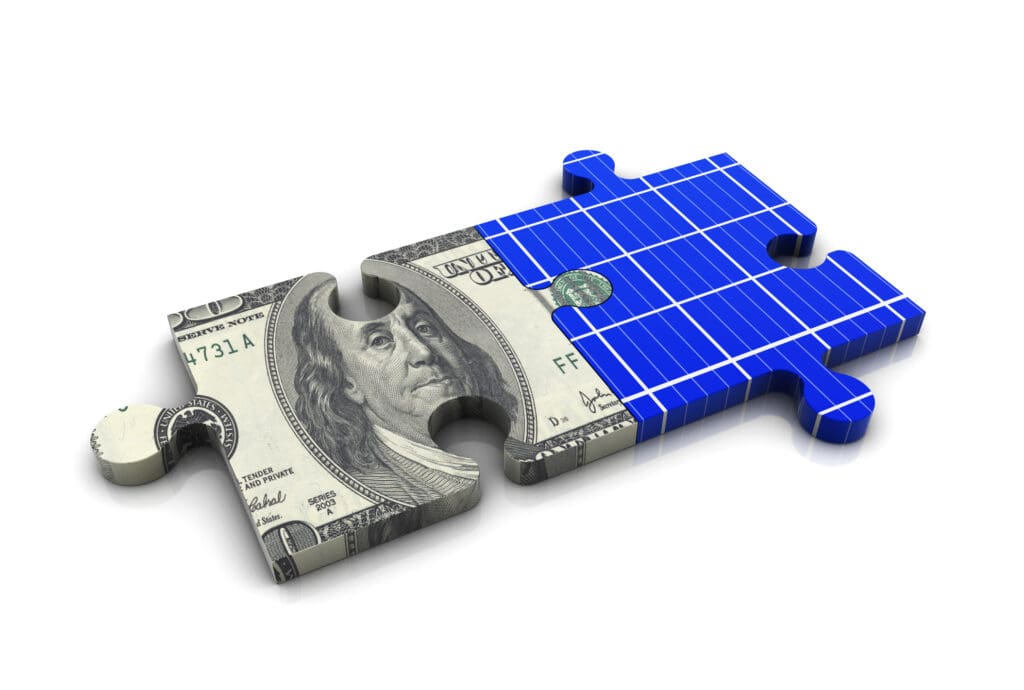Solar Myths Busted: What You Really Need to Know
As solar energy becomes more popular, so do the misconceptions surrounding it. Whether you’re considering going solar or just curious, it’s important to separate fact from fiction. At Northwest Hills Solar, we’ve heard it all, and we’re here to clear up some of the most common myths about solar power. Let’s bust those myths and get to what you really need to know about going solar.
Myth 1: “Solar Panels Don’t Work in Cloudy or Cold Weather”
Reality: Solar panels can still generate electricity on cloudy days and during the winter months. While solar panels are most efficient under direct sunlight, they can produce power from diffuse or indirect light as well. In fact, Connecticut has around 194 sunny days per year, and solar panels are designed to work even when the sun isn’t blazing. Cooler temperatures can actually improve solar efficiency because heat can reduce the output of solar panels. So, don’t let weather concerns hold you back—solar works just fine in all seasons.
Myth 2: “Solar Panels Are Too Expensive”
Reality: The cost of solar has dropped significantly over the past decade, and thanks to incentives like the federal Investment Tax Credit (ITC), rebates, and state-specific programs, going solar is more affordable than ever. In Connecticut, you can take advantage of the Zero Emission Renewable Energy Credit (ZREC) program and other local incentives that make solar a smart financial decision.
Additionally, most solar companies (including Northwest Hills Solar) offer flexible financing options like solar loans or leasing, allowing you to install solar with little to no upfront cost. When you consider the long-term savings on your energy bills, solar quickly pays for itself.
Myth 3: “Solar Panels Will Damage My Roof”
Reality: Properly installed solar panels will not damage your roof—in fact, they can help protect the part of your roof they cover from the elements. At Northwest Hills Solar, our expert installers ensure that your roof remains intact and that the panels are securely mounted. We also evaluate your roof’s condition during the initial consultation, ensuring it can support solar panels without issue.
The panels are typically mounted on a racking system that’s attached to the roof with minimal, weather-sealed penetrations. In many cases, solar panels extend the life of your roof by shielding it from UV rays, rain, snow, and other weather conditions.
Myth 4: “Solar Energy Requires Too Much Maintenance”
Reality: Solar panels are designed to be low-maintenance, with most systems requiring little to no upkeep over their 25+ year lifespan. Panels have no moving parts, so there’s very little that can break or wear out.
Most solar systems come with warranties that cover performance and maintenance, so you’re protected if any issues do arise. At Northwest Hills Solar, we also offer monitoring services that track your system’s performance 24/7, so you’ll know immediately if something needs attention.

Myth 5: “Solar Panels Will Lower My Property’s Value”
Reality: In fact, the opposite is true—solar panels can increase your home’s value. Studies have shown that homes with solar energy systems sell for more than those without, and they tend to sell faster as well. Buyers are often willing to pay a premium for a home with lower energy costs, especially in states like Connecticut where electricity rates are high.
Not only do solar panels increase home value, but you also get the added benefit of lower monthly utility bills, making your home more appealing to future buyers.
Myth 6: “Solar Power Only Works if I Go Off the Grid”
Reality: Most solar-powered homes stay connected to the grid. This allows you to draw power from your utility company when your system isn’t producing enough electricity (like at night or on overcast days). Conversely, when your panels generate excess energy, you can send it back to the grid and receive credits on your utility bill through a process called net metering.
Going solar doesn’t mean you have to go completely off-grid—it simply reduces your reliance on traditional energy sources and cuts down on your electricity bills. You can still enjoy the benefits of both solar energy and a connection to the grid for a seamless, uninterrupted energy supply.
Myth 7: “Solar Panels Are Ugly”
Reality: Modern solar panels are sleek, low-profile, and designed to blend in with your roof. The days of bulky, awkward-looking panels are long gone. Today’s solar systems offer clean lines and even come in all-black options that integrate smoothly with your home’s design. Some homeowners even consider them a stylish addition that highlights their commitment to sustainability.
If aesthetics are a concern, discuss panel placement with your solar installer. Panels can often be installed in less visible areas or angled to minimize their appearance.
Myth 8: “It’s Too Late to Go Solar—The Best Incentives Are Gone”
Reality: It’s not too late to take advantage of solar incentives! While some state programs may have expired, the federal government still offers a 30% tax credit through the ITC, and Connecticut continues to provide strong incentives like the ZREC program and sales tax exemptions for solar equipment. Plus, many utilities in Connecticut offer rebates and performance-based incentives to further reduce the cost of going solar.
The combination of current incentives and the steadily decreasing cost of solar technology means there’s still plenty of time to benefit from going solar.
Myth 9: “Solar Panels Don’t Last Long”
Reality: Solar panels are built to last. Most panels come with a warranty of 25 years or more, and many continue to produce energy well beyond that. Over time, panels may experience a slight reduction in efficiency, but most systems still produce around 80% of their original output even after 25 years. With minimal maintenance, your solar system will continue to provide clean, renewable energy for decades.
Conclusion: Solar is Worth It
Solar energy is one of the most reliable and cost-effective ways to power your home, and it comes with long-term financial and environmental benefits. At Northwest Hills Solar, we believe that the decision to go solar should be based on facts, not myths. By busting these common misconceptions, we hope to help you make an informed choice that benefits both your home and the planet.
If you have more questions about solar or want to learn how solar can work for your home, contact us today. We’re here to guide you through the process and help you take the next step toward a brighter, cleaner future.
